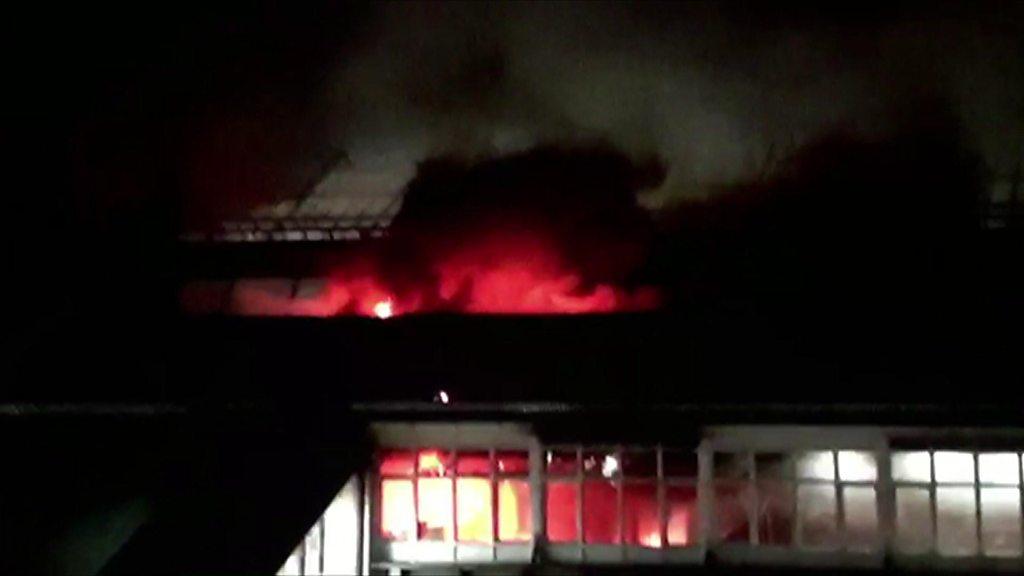Nottingham station fire: Sprinklers 'could have stopped' blaze
- Published
The station was evacuated and trains were cancelled
A severe blaze which gutted part of a railway station could have been over within an hour if sprinklers had been installed, a fire chief has said.
The fire at Nottingham station burned for 12 hours after a new section of the station caught fire on Friday.
Incident commander Bryn Coleman said sprinklers could have halted the rapid spread of the blaze and limited the damage caused.
Network Rail said it was "inappropriate to comment" during investigations.
'Less damage'
Mr Coleman, of Nottinghamshire Fire and Rescue, told the BBC: "There were no sprinklers going off and I don't believe that there are any sprinklers in the building.
"If it had been a fire contained to the toilet block you would be looking at probably an hour for a single room fire.
"The damage would have been less, the impact to the wider community would have been less because we wouldn't have had to close the rail station, the roads wouldn't have been closed, and we probably would have dealt with it with two fire appliances."
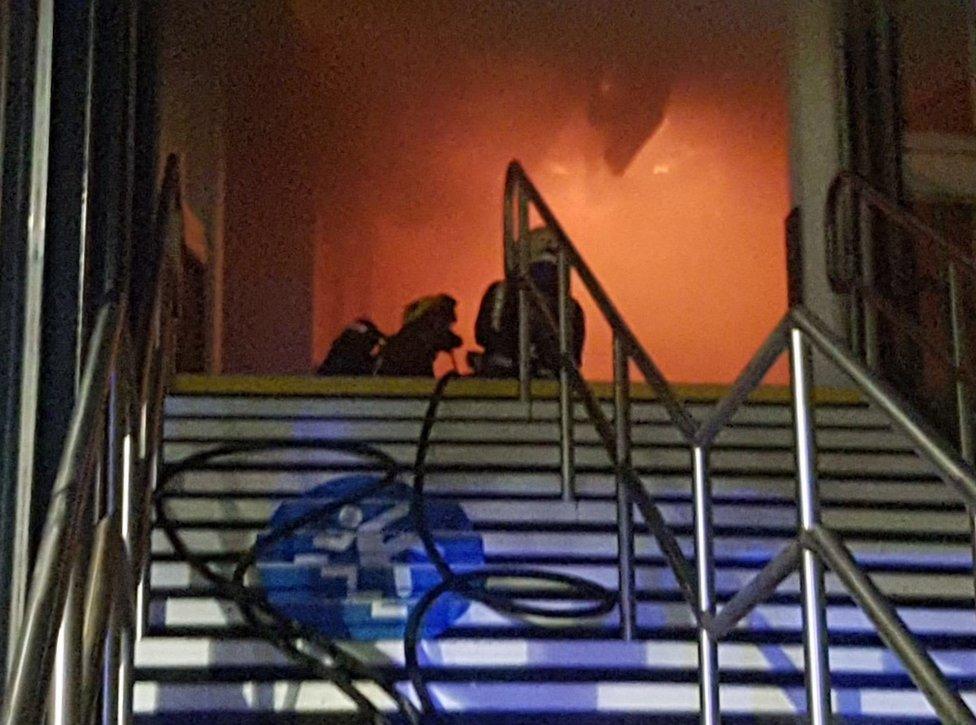
Firefighters arrived within minutes but the fire was already "well developed" by then
A three-year refurbishment of the station was completed in 2014 at a cost of £60m.
Keith Rhodes, from Nationwide Fire Sprinklers, said a sprinkler system would have cost about £70,000 for a pump room and water tank, then another £15 for every square metre of the building to be protected.
Fire protection consultant Stewart Kidd said there is no legal requirement to fit sprinklers at railway stations, but he believes they should have been fitted at Nottingham.
'Favourite arson point'
"I think sprinklers are the simplest solution to fire safety problems," said Mr Kidd, a former director of the national safety body the Fire Protection Association.
He said toilets are a "favourite arson point" and it is important to have sprinklers in vulnerable areas such as these.
"Typically it's paper towels or toilet paper being stacked up and set on fire. If that happens then one sprinkler head would have opened," he said.
"It would have kicked out about 70 or 80 litres of water a minute which would have either extinguished the fire completely or certainly suppressed it and stopped it spreading."
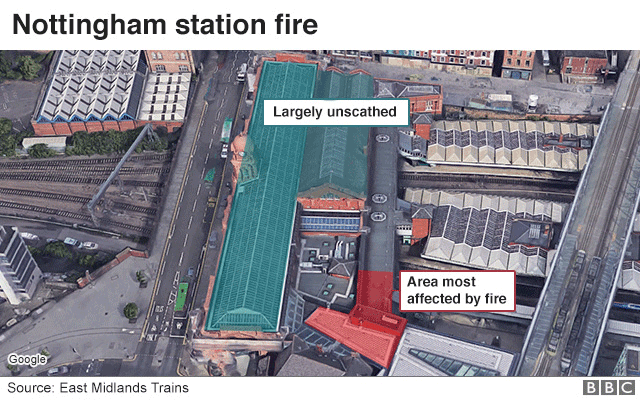
Most of the fire damage is to the new Southern Concourse part of the station
Mr Coleman described the spread of the fire on Friday as "rapid" and 12 appliances were at the station at the height of the 12-hour blaze.
The fire, which is being treated as arson, started in a women's toilet block in a new part of the station called the Southern Concourse.
The initial two fire crews got there within minutes of being called at about 06:30 GMT, as the fire station is only 500 metres (0.3 miles) away from the railway station.
However, by then the fire was already "well developed", Mr Coleman said.
"It had been a rapidly developing fire and the reasons behind that are still under investigation between ourselves and British Transport Police," said Mr Coleman.
"Our fire protection team will be working with Network Rail's engineers to look at the build, to look at the building construction and how it's all been put together."
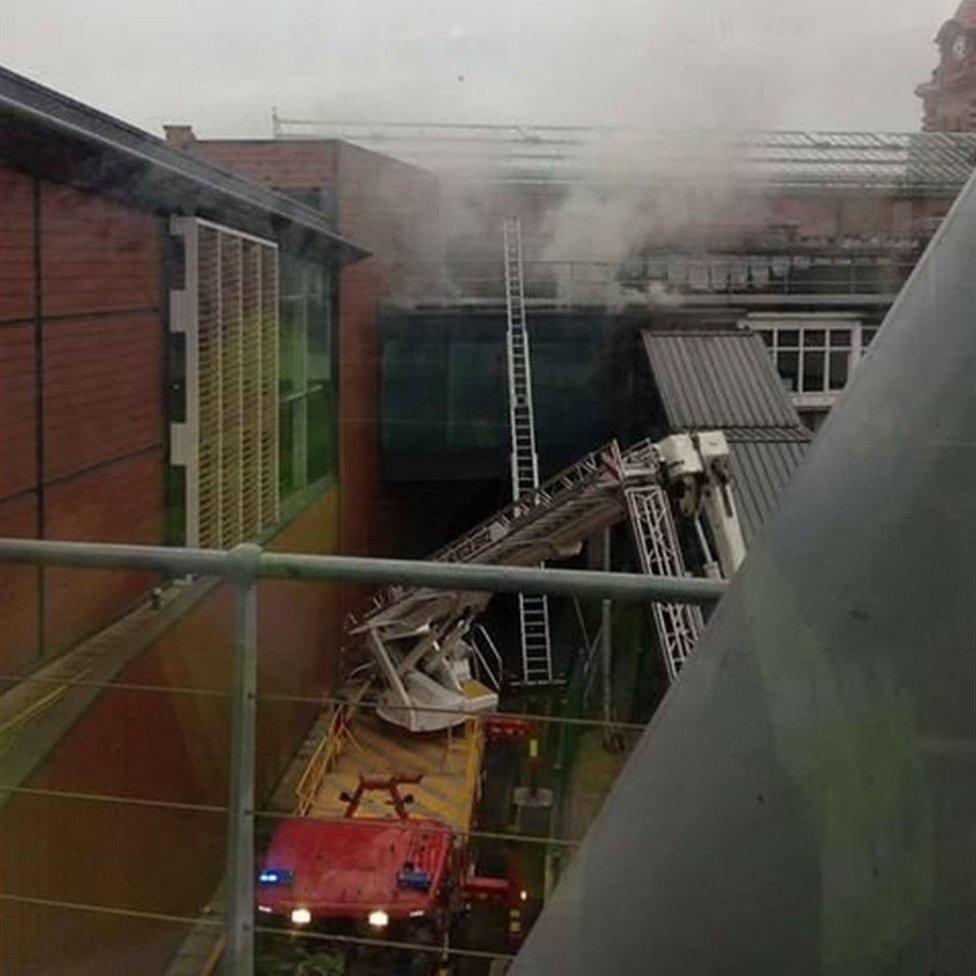
The fire started spreading along a wooden bridge that goes across some of the platforms
Network Rail, which owns the building, has previously declined to tell the BBC whether or not sprinklers had been fitted, or give details of other fire safety measures.
Mr Coleman said: "If sprinklers would have been fitted that would have been part of our operational tactics and they [the building's owners] would have made us aware of that.
"Sprinklers undoubtedly save lives and limit fire damage and that's why the National Fire Chiefs Council promote them, but of course there's an impact and cost to businesses from installing them.
"It's a bit like having an insurance policy. Nobody likes paying for an insurance policy until they have an incident or a fire, and then they wish they had installed them.
"We can't legislate for them, unfortunately, because we're a fire and rescue service and not the government."
Mr Coleman said the investigation would look at whether or not the railway station complied with regulations.
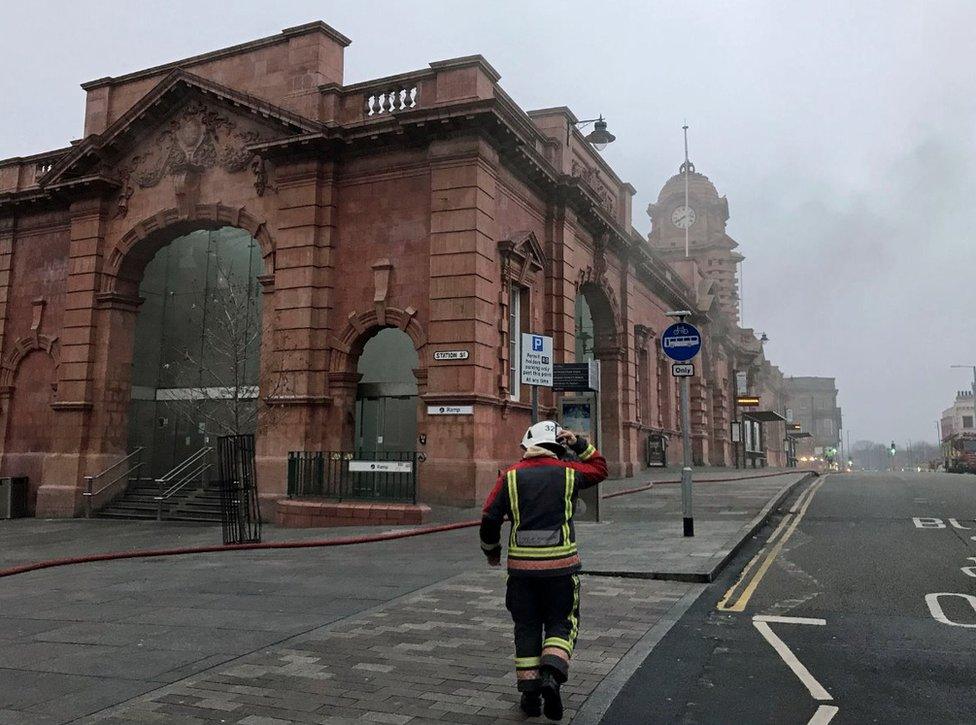
The older part of the station, shown here on the day of the fire, has "largely escaped unscathed"
Network Rail said in a statement: "Every station is assessed for fire safety and regularly reviewed.
"If there is anything we can learn from the official investigations we will, of course, do so but it is inappropriate to comment on detail while those investigations are ongoing."
The redevelopment of the station was a joint project between Network Rail, Nottingham City Council, East Midlands Trains and the Rail Heritage Trust.
Councillor Jane Urquhart, who was in charge of planning and transportation when the station was redeveloped, said: "Of course there will be questions to answer and we will be cooperating where we need to and working together with the British Transport Police in their investigation of the fire.
"We hope that we will find some answers about how it started and why it spread so quickly and we will have to then think about what that means for how it's rebuilt and redeveloped."
To discuss an East Midlands story idea, contact caroline.lowbridge@bbc.co.uk.
- Published17 January 2018
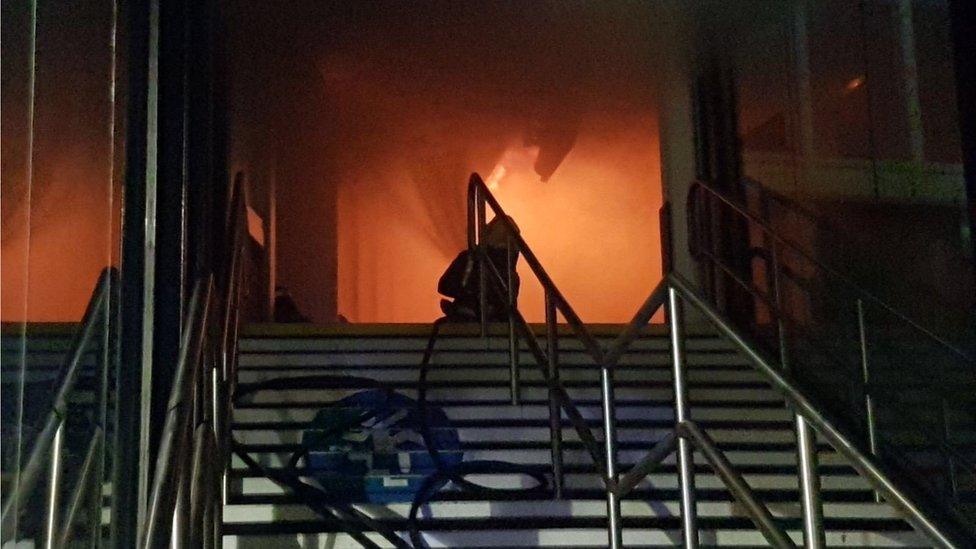
- Published13 January 2018

- Published12 January 2018

- Published12 January 2018
